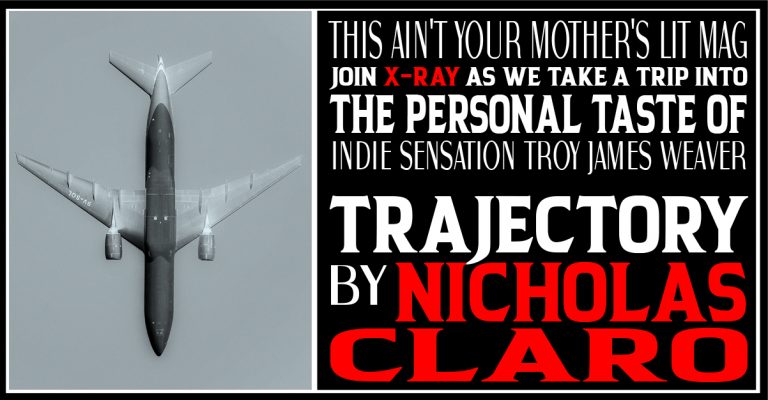
TRAJECTORY by Nicholas Claro
Like everyone else, when I see the plane, I get up from the table to get a better look. I’m not exactly sure at what speed planes travel, but I know a plane must travel faster when it’s diving.

Like everyone else, when I see the plane, I get up from the table to get a better look. I’m not exactly sure at what speed planes travel, but I know a plane must travel faster when it’s diving.

We liked tabs. Gas masks. We liked getting faced and night surfing with the parked Bronco’s glowing eyes as our landmark when we were out in the lineup.

The rabid snails were completely gone. We would get our deposit back. Probably.
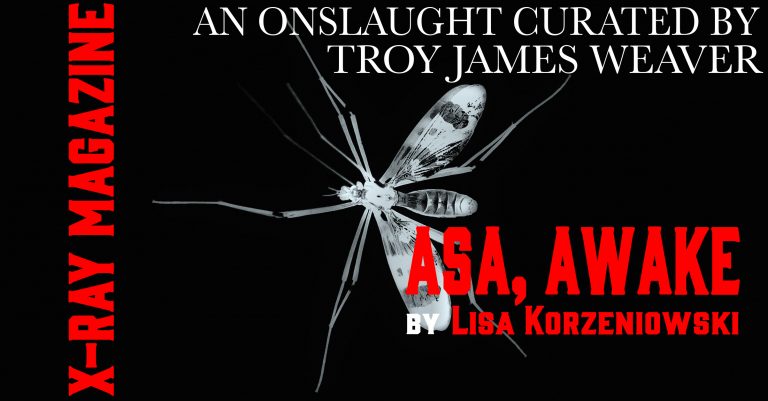
Asa is asleep in the sun, arms track-marked and mosquito-bitten, crossed over his chest, his mouth open with a mid-sentence look, teeth, gone or brown, chin stubble flecked with leaf bits. We lean down, listen for breath. He whispers something that sounds like help, and then, he opens his eyes. “Hello,” he says, adding extra o’s. “A porch is no place to sleep,” our mother says. Asa tells her to make like a tree and leave. “Damn drugs,” she says, followed by “my son” and “junkie.” Asa smiles when she leaves, spits over the porch railing as she backs out
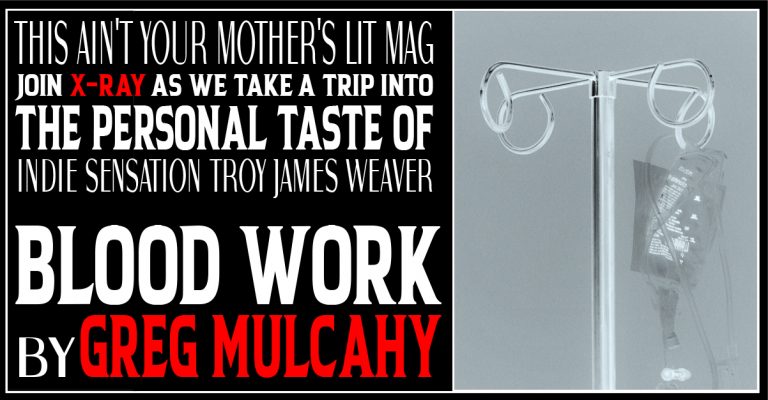
Some things, Bass knew, were better not said, even if at one time everyone was saying them

He dipped his finger in the whipping cream and held it in front of the boy’s mouth. The boy looked down at his feet, then raised his head and licked the cream from the man’s finger.
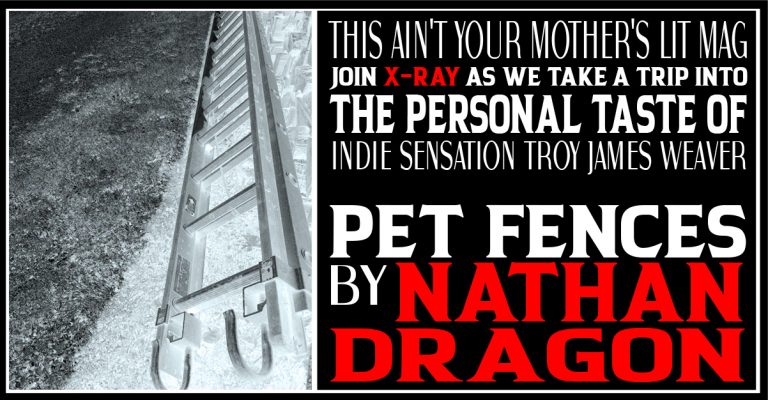
The phone number I have, my phone number for the last 16 years at least, used to be this other guy’s phone number—
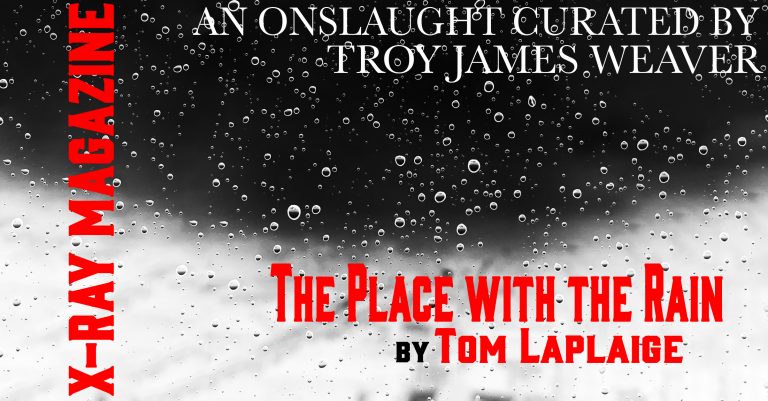
Oh dear is a fretful tingle. A tingle hatches hungry dread. Roger drops to knees.
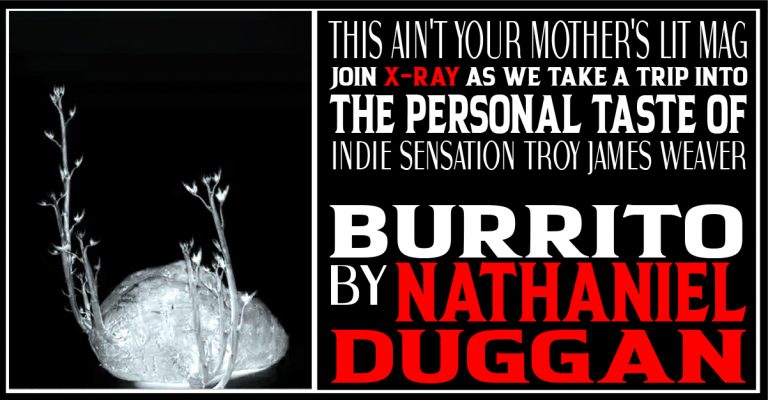
I decided to order the burrito. I pronounced “burrito” wrong. The word fell from me, flabbergasting and impossible.
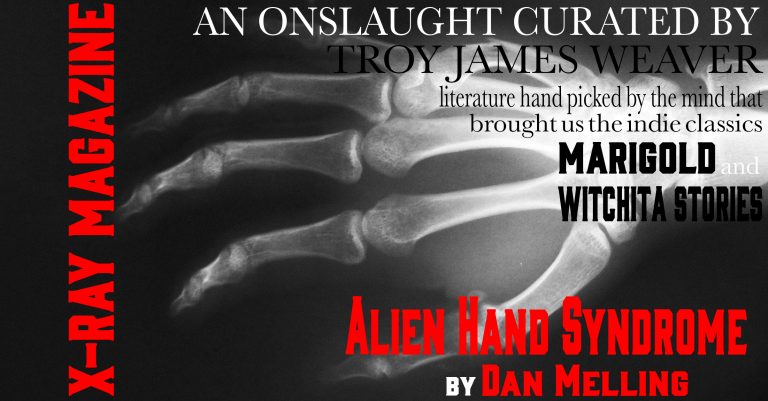
He’s lying on his back. His useless, hairless legs stay wherever I put them.
